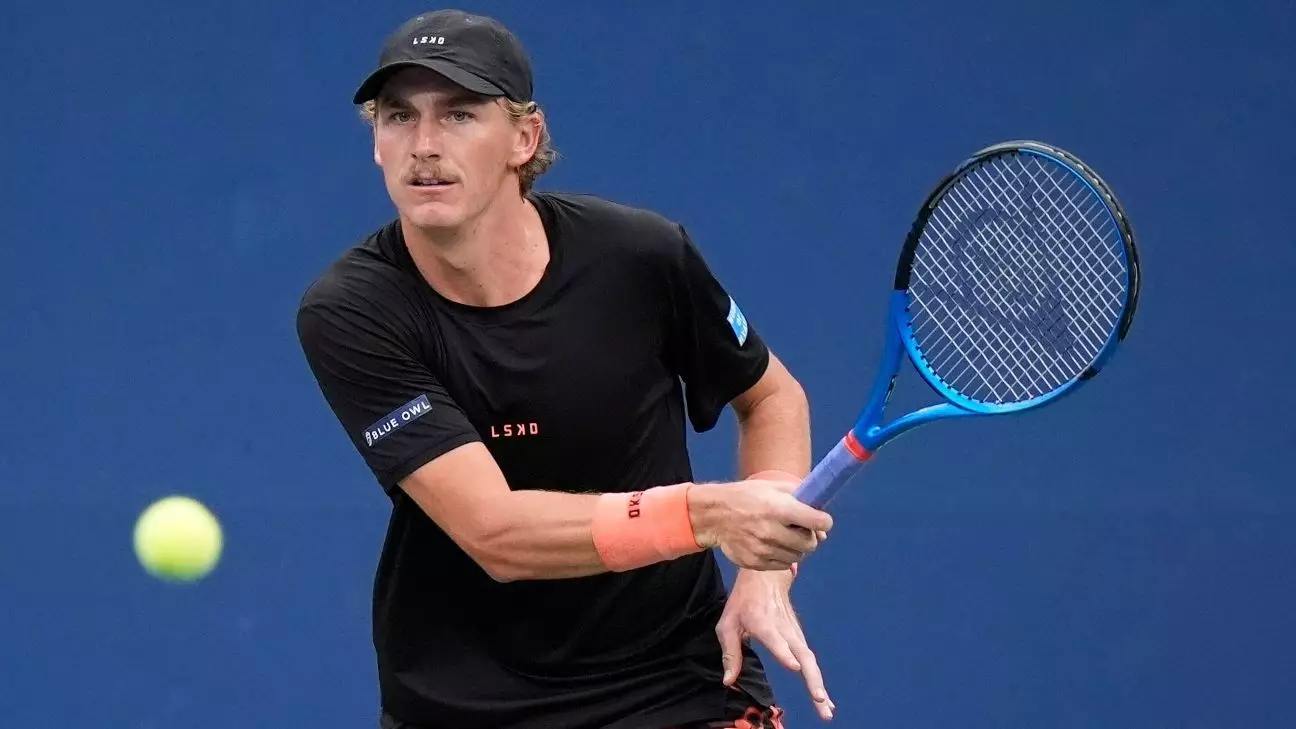Max Purcell’s Voluntary Suspension: A Call for Reflection in Tennis
Hey there, fellow tennis enthusiasts! Today, we’re diving deep into a story that’s got the entire tennis world talking. If you’ve been following the sport closely, you might have already heard about Max Purcell’s recent voluntary suspension. It’s a situation that not only shakes up the rankings but also raises some serious questions about athlete conduct and integrity within the sport. As someone who loves tennis, I find this both troubling and intriguing, and I bet you do too.
When news broke about Max Purcell’s decision to accept a provisional suspension, it felt like a wake-up call. The International Tennis Integrity Agency (ITIA) reported that Purcell admitted to breaching the Tennis Anti-Doping Program, specifically Article 2.2 related to prohibited methods of performance enhancement. This revelation was unexpected and served as a stark reminder of the ongoing battle against doping in sports. It got me thinking about how much we ask of our athletes and what pressures they face.
Now that Max is sidelined, there’s a void in tournaments worldwide. From coaching gigs to simply attending events, his absence is palpable. The suspension has been in effect since December 12, and while the details regarding its duration remain unclear, any time served will count toward a potential longer-term penalty. This uncertainty leaves us wondering about the full extent of his violations and if there’s more to come in terms of repercussions. It’s like we’re watching a drama unfold with no script or clear ending in sight.
Key Takeaways
- Max Purcell has accepted a provisional suspension due to anti-doping violations.
- The suspension affects his participation in all authorized tennis events globally.
- This case highlights ongoing integrity challenges within professional tennis.
- The situation invites reflection on doping regulations and fair play in sports.
A Shining Career Under Threat
Max Purcell has been on quite the trajectory in professional tennis. Known for his exceptional doubles play, he recently clinched victory at the 2023 U.S. Open alongside Jordan Thompson. This win added another feather to his cap after triumphing at Wimbledon in 2022 with Matthew Ebden. His consistent performances as an Australian Open doubles finalist further underscore his talent and potential within the sport. However, now ranked No. 12 in doubles and No. 105 in singles, this suspension casts a long shadow over his professional future.
The timing of his suspension coincided with the release of the Australian Open entry list, which noticeably lacked Purcell’s name. This omission sparked speculation about whether his sanction was directly connected to tournament decisions. It’s disheartening for fans who were looking forward to seeing him compete at this prestigious event. It’s also a testament to how one decision can ripple through an athlete’s career, affecting not just their standings but also their aspirations and opportunities.

The Bigger Picture: A Troubling Trend
Unfortunately, Max Purcell’s case isn’t an isolated incident within professional tennis. Just weeks before his suspension, five-time Grand Slam winner Iga Swiatek faced her own month-long suspension after testing positive for trimetazidine, another banned substance. In contrast, Jannik Sinner was recently acquitted after testing positive for trace amounts of anabolic steroids. These incidents illustrate the complex landscape of doping regulations and reflect broader challenges around maintaining integrity in sports today.
The frequency of these cases suggests a critical moment for tennis—a sport increasingly besieged by integrity concerns that demand rigorous enforcement of anti-doping measures. As fans and stakeholders alike grapple with these revelations, there’s mounting pressure on regulatory bodies to ensure fair play across competitions worldwide. It’s a reminder that amidst all the accolades lies a deeper responsibility to uphold ethical standards that preserve the spirit of fair competition.
Steps Toward Fair Play
So what can be done moving forward? Here are some thoughts:
- Increased Transparency: Transparency is key when it comes to handling doping cases. By providing clear information about violations and penalties, organizations can build trust with athletes and fans alike.
- Education Initiatives: Implementing comprehensive education programs for athletes on anti-doping rules can prevent unintentional breaches due to ignorance or misinformation.
- Stricter Enforcement: Ensuring stringent enforcement of anti-doping measures will deter athletes from considering performance-enhancing methods as viable options.
Final Thoughts
The fallout from Max Purcell’s suspension offers us all—fans, athletes, and officials—a moment for reflection on doping within tennis. It serves as both a cautionary tale and an opportunity for growth within the sport we love so dearly. As more athletes find themselves entangled in similar situations, it’s crucial we question current regulations’ effectiveness while advocating for cultural shifts toward genuine fair play practices across competitions worldwide.
As we await further developments surrounding Max’s case—and others like it—the global tennis community must strive toward accountability through transparency while ensuring that competitive integrity remains untarnished by unethical shortcuts or compromises along players’ journeys toward greatness!
Max Purcell
tennis suspension
anti-doping
sports integrity
tennis regulations


Leave a Reply